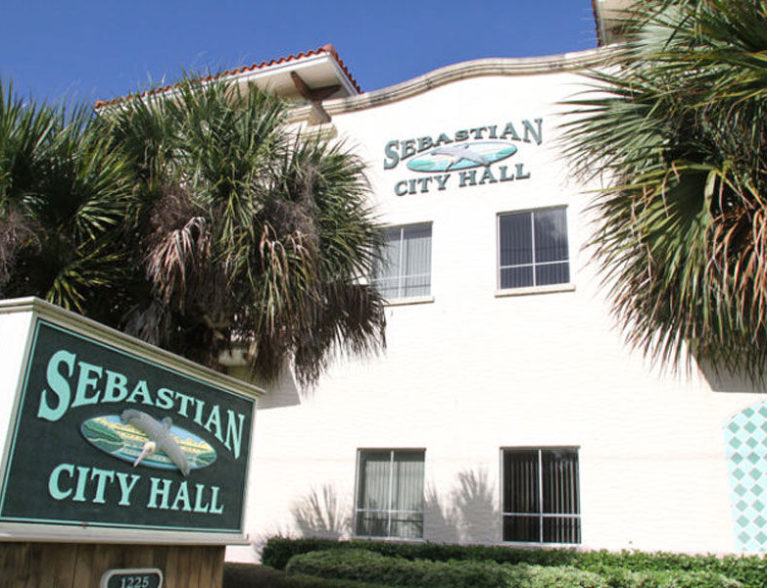
It wasn’t the concept but the parking that put the kibosh on a bed and breakfast project brought before the Sebastian Planning and Zoning Commission Nov. 19.
The project was to be constructed on a vacant parcel east of Indian River Drive at the intersection with Davis Street just north of Squid Lips. Marc and Kathleen Gingras had sought approval of a “new, 2-story structure with a parking garage underneath for a bed and breakfast consisting of four units and an owners’ suite.”
The Gingrases were also seeking a conditional use permit and a waiver from Sebastian’s Riverfront Overlay Landscaping regulations. Site improvements would have included the below-grade parking area, stormwater facilities, water and sewer lines and landscaping.
City staff and Planning and Zoning agreed a bed and breakfast could enhance the friendly, village ambiance of Sebastian and said the zoning was appropriate, both bodies had problems with the size of the project on a small property (.13-acre overall, only .11 excluding wetlands). Both were even more concerned about parking.
The Community Development Department report to P & Z stated that “two and possibly three variances are needed” relating to the parking underneath the building. The city engineer and City staff “have concerns that the maneuverability in and out of the garage will be extremely cumbersome considering the location of the load-bearing support column and walls.
“Since half the requested spaces will be offsite because of the parking-in-lieu request, and one of the on-site spaces is handicapped designated, at most times the garage will be full,” according to the report.
Staff foresaw problems that might arise when, upon pulling in and finding no spaces available, guests would be forced to back out or try to turn around, which would be difficult if not impossible for large cars, vans and trucks.
“Because of the concerns with parking and maneuverability, staff is not ready to make a formal recommendation of approval at this time,” zoning technician Dori Bosworth told the Commission.
Initial concerns by several residents about sufficient landscape buffering between the project and adjacent homes and the property’s former use as a gas station were allayed: Bosworth said there would be an appropriate landscape buffer and assured the Board that the fuel storage tanks have long been removed and the property is in compliance with the FDEP and the Army Corps.
As the discussion focused on parking, however, Commission members expressed the same concerns as staff. Louise Kautenburg noted that, although her car is considered a compact, she still has trouble squeezing into some compact-designated spaces. John McManus felt that trying to back out or to somehow negotiate a turn inside the garage would be too much of a challenge.
Chairman Ed Doud agreed. “It seems very difficult. And I don’t see the No. 3 (parking space) being usable at all. And the turn-around area is another issue. If you pull in, it’ll be difficult to get out.”
Members of the public were also worried that vehicles would have to back out onto the well-travelled Indian River Drive, creating traffic hazards.
Project agent Tahir Qizilbash said he foresaw no traffic problems because the facility is expected to have no more than 25 percent to 50 percent occupancy at any given time. (Qizilbash, a member of the P&Z Commission, had recused himself from the B&B proceedings.)
Kautenburg responded that Qizilbash’s assumption was simply incorrect. “If you build it, they will come,” she assured him. “The concept is great, but the lot is way too small. It’s an extra-large structure and you need more parking. And there’s no provision for storage of maintenance equipment.”
Commission member Joel Roth disagreed. In reality, he said, “It’s a B&B, not a hotel. I don’t think there will be a traffic issue, and I don’t think it’s overuse.”
“It’s a fantastic mixed-use project,” said Doud, concluding reluctantly, “but the parking bothers me.”
The Commission voted to recommend the City Council deny the Gingras’ request.



